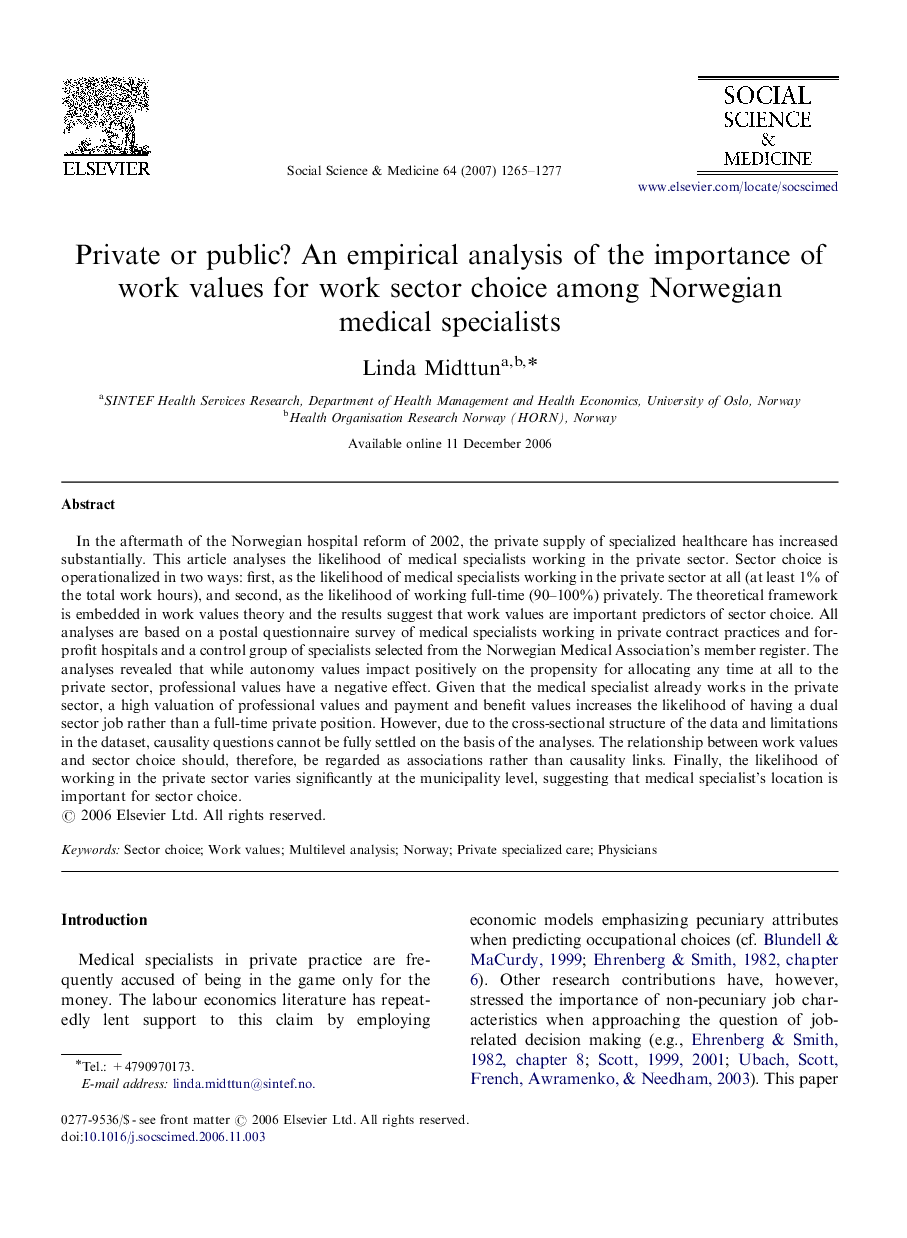| Article ID | Journal | Published Year | Pages | File Type |
|---|---|---|---|---|
| 954362 | Social Science & Medicine | 2007 | 13 Pages |
In the aftermath of the Norwegian hospital reform of 2002, the private supply of specialized healthcare has increased substantially. This article analyses the likelihood of medical specialists working in the private sector. Sector choice is operationalized in two ways: first, as the likelihood of medical specialists working in the private sector at all (at least 1% of the total work hours), and second, as the likelihood of working full-time (90–100%) privately. The theoretical framework is embedded in work values theory and the results suggest that work values are important predictors of sector choice. All analyses are based on a postal questionnaire survey of medical specialists working in private contract practices and for-profit hospitals and a control group of specialists selected from the Norwegian Medical Association's member register. The analyses revealed that while autonomy values impact positively on the propensity for allocating any time at all to the private sector, professional values have a negative effect. Given that the medical specialist already works in the private sector, a high valuation of professional values and payment and benefit values increases the likelihood of having a dual sector job rather than a full-time private position. However, due to the cross-sectional structure of the data and limitations in the dataset, causality questions cannot be fully settled on the basis of the analyses. The relationship between work values and sector choice should, therefore, be regarded as associations rather than causality links. Finally, the likelihood of working in the private sector varies significantly at the municipality level, suggesting that medical specialist's location is important for sector choice.
